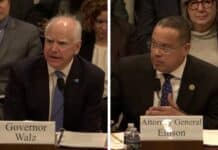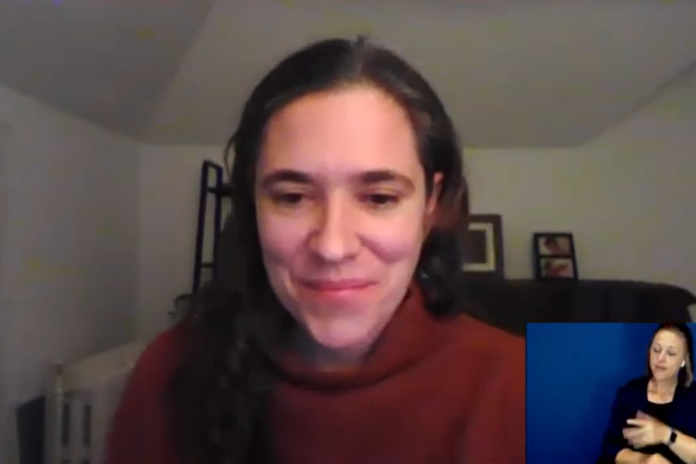More than 400 Minneapolis residents testified during a Minneapolis City Council meeting this week on the 2021 city budget, which could include at least a seven percent decrease in police funding.
Three Minneapolis City Council members issued their own budget proposal last week, which cuts another $7.9 million from the already reduced police budget proposed by Mayor Jacob Frey. This “Safety for All Budget Plan” was released by City Council President Lisa Bender along with Council Members Steve Fletcher and Phillipe Cunningham.
The “Safety for All” proposal suggests $7.9 million be moved out of Mayor Frey’s proposed 2021 police budget and instead be used for initiatives that “provide the right response to calls for help,” “effectively prevent and intervene in cycles of violence,” and “increase resources for civilian-led police accountability.”
At a press conference Monday, Mayor Frey renounced the “Safety for All” plan, calling it “irresponsible and untenable, especially given what we are presently experiencing now in this city.”
“Let’s listen to our community, and let’s ultimately do right by them,” Frey urged the council.
A total of 430 Minneapolis residents registered to speak during the Wednesday night meeting. Each speaker was given 60 seconds, resulting in a meeting that lasted nearly eight hours.
One resident advocated for the mayor’s proposal as it stands, and for “sensible solutions to public safety” by way of voting out Council Member Fletcher.
“Many of you in our city council have created a vacuum in our city, letting criminals run wild … we know it’s happening. It’s becoming quite dangerous. Reform cannot be created until safety is created,” another resident said. “The mob will not protect you from these criminals.”
One Minneapolis resident said she now drives 30 minutes to buy her groceries in the suburbs because she is afraid of getting carjacked if she shops locally. Another citizen said he has never felt so unsafe, and his neighbors and friends feel the city is in chaos because of the power criminals have been given.
“If rules aren’t enforced, fear takes over,” a lifelong teacher declared, arguing that police and the law are necessary, just as children need to be aware of classroom rules in order to thrive.
“Stop with these ill-conceived ideas that support your anti-police agenda. You are ignoring local mental health experts that argue against your proposal,” the resident added, noting that overtime pay (which would be reduced under the “Safety for All” plan) is an “unpredictable expense.”
Another resident was alarmed by the timing of the “Safety for All” plan, considering the current state of the city, but said he would support the plan in different circumstances.
Most residents who testified seemed to be concerned with the staggering increase in violent crimes this year. “I feel like we live in the wild west,” one woman said.
Some said the Minneapolis Police Department needs to be “restored,” while one caller supported alternatives to police, but said Minneapolis is in a “critical” situation so reform efforts need to wait.
One Minneapolis woman expressed concern for mental health officials and social workers who respond to non-violent calls that could turn violent.
But another said it is “a waste of law enforcement time” when police are sent to calls that would be better suited for social workers or mental health professionals. This resident advocated for reallocating $8 million to mental health crisis teams and violence prevention teams.
“Police do not and have not prevented crime, including the recent carjackings and violent crimes,” one of the speakers said. “We need funding to address the root causes of violence, marginalization and inequity, especially during the pandemic and recession … I urge you to move funding from MPD to real solutions.”
Others called for increased funding for mental health, substance abuse, and environmental justice programs, with one resident claiming that “more police will only perpetuate the racial inequity that is seeped into every facet of our local and state government.”
Comments were all over the board: some were in favor of the mayor’s proposal, some advocated for increased police funding, and some suggested moving police funding elsewhere.
The council is scheduled to adopt a final budget at its Wednesday night meeting next week.










